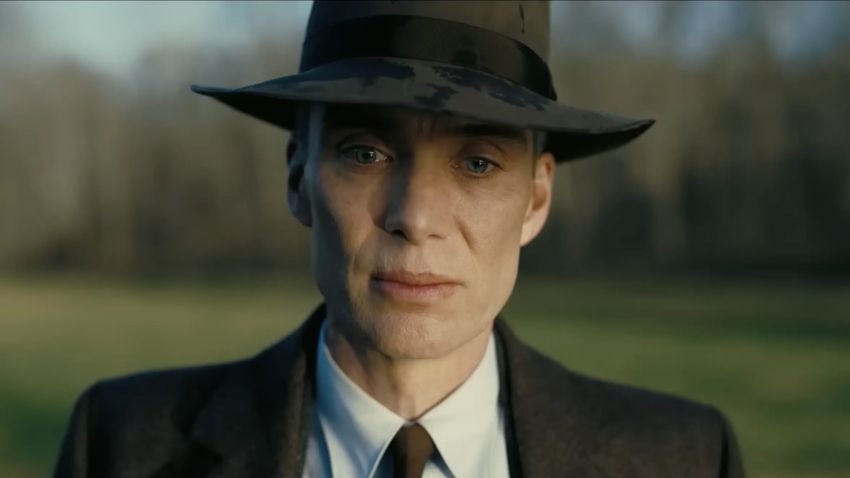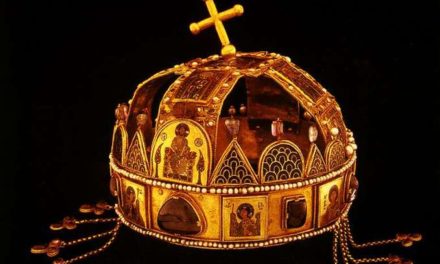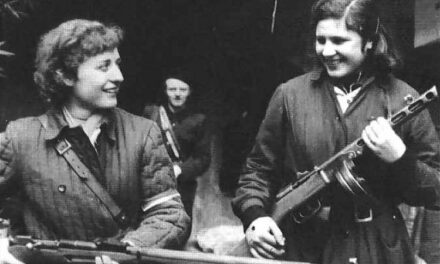Christopher Nolan's new work is quite a monumental undertaking, one of the most ambitious biopics in history, as it could not be about a more controversial personality. Was Oppenheimer a mass murderer or a brilliant explorer?
The father of the atomic bomb was a mastermind, a pioneer, an American war hero, and then a convicted communist who built a weapon that killed 130,000 to 200,000 civilians, including women and children.
Nolan is one of the most successful and, at the same time, one of the best directors of our time, who can now afford to do only what he wants and how he wants. His new film is based on the 2005 Pulitzer Prize-winning American Prometheus biography by Kai Bird and Martin J. Sherwin. The movie mostly focuses on the Manhattan Plan, which was launched in 1942 so that the Americans, under the leadership of J. Robert Oppenheimer and Hungarians like Ede Teller and Leó Szilárd, could create the first atomic bomb.
Who was the real father of the atomic bomb?
As the title of the biographical book and the subtitles in the opening of the film indicate, Nolan thinks of Oppenheimer as a kind of modern Prometheus, who did not steal fire from the gods and gave it to man, but instead created a more destructive weapon than any before in the form of the atomic bomb. According to legend, Prometheus' punishment was thirty years of torture, and Oppenheimer himself confessed to the crime, the only question is whether he got his deserved punishment.
At the beginning of the film, Oppenheimer does not really endear himself to the viewer when, as a neurotic university student suffering from mental illness, he tries to poison his professor, later Nobel laureate Patrick Blackett, who in Cambridge treated the struggling student very harshly in class. Oppenheimer left a poisoned apple on his desk, which in the film he eventually knocks out of the hand of his role model, Niels Bohr. In reality, the case somehow reached the university leadership, and Oppenheimer's influential parents had to intervene to prevent their son from being blackmailed.
Returning to America during the Great Depression, Oppenheimer and his circle embraced left-wing ideals, he donated to the Republicans in the Spanish Civil War, and later to European Jews fleeing the Nazis. He was not revolutionary, but his environment was even more so: his younger brother, Frank, was a member of the Communist Party, as were his girlfriend, Jean Tatlock, and his later wife, Katherine Puening. Despite this, he was asked by General Leslie Groves to manage the Manhattan Plan, but later this sinister past was turned against him amid the Cold War paranoia of the 1950s.
Despite its name, the Manhattan Plan, which was created in response to the letter written by Albert Einstein and Leo Szilárd to President Franklin D. Roosevelt, took place in the Los Alamos laboratory in New Mexico, led by Oppenheimer. The first big dilemma for him and his scientists was that they realized that it cannot be ruled out that the detonation of an atomic bomb would cause a chain reaction that would engulf the atmosphere in flames, i.e. destroy the world. This theory was also checked with Einstein in the movie (not in reality), and in the end they came up with nothing more than that the chances of this happening are almost zero - i.e. not exactly zero. But in the meantime, they were driven by what would happen if the Germans won the race for the first atomic bomb. The Nazis didn't actually get very far, but that was the best one could hope for at the time.
Whether this bomb, which is theoretically capable of destroying the world, will then be dropped on civilians - but not on military or strategic targets, they are too small for a weapon capable of such destruction - this question arose during the project when Germany capitulated, Japan and he remained alone in the war, as an opponent who refused to lay down his arms, but was surely beaten. Three weeks before the bombing of Hiroshima, seventy scientists working on the Manhattan Plan signed a petition addressed to President Harry Truman protesting the dropping of the atomic bomb. They asked to give Japan a fair chance to capitulate, but the initiative did not reach Truman. Oppenheimer did not join, and even convinced Teller that they had no right to interfere in political and war affairs. In fact, as the film shows, Oppenheimer also argued that the atom could not be dropped on military or strategic facilities and also cast his vote for Hiroshima.
Although the film does not really address this, at least to this extent it is open to interpretation, but we suspect that Oppenheimer fell in love with his invention (and with it his own importance) and was also blinded by his hatred of the Nazis and fascism.
Even a brilliant mind is spurred to such brutality by the belief in moral superiority, the many losses of war and xenophobic propaganda. Not to mention that intellect and morality do not necessarily go hand in hand. There was also a kind of naivety in Oppenheimer that this bomb could end mankind's wars. Stanley Kubrick's immortal classic, 2001: A Space Odyssey - on real grounds, of course - calculates human civilization from when our ancestors began to use weapons, and science could theoretically have brought world peace and the destruction of humanity in Oppenheimer's case as well. So far, the atomic bomb has not caused any of them, but there is no question about which one it brought the world closer to.
In this story lies the eternal American debate about who is guilty: who makes the gun or who pulls the trigger.
The American myth that peace can be created through war, and the biblical teaching about turning the other cheek, or as Gandhi said, an eye for an eye, and the whole world will be blinded. As weapons became more and more efficient and destructive, waiting for the enemy to attack seemed less logically advisable. Perhaps the atomic bomb was the inevitable chapter of what began with the use of weapons by our ancestors in 2001: A Space Odyssey. In this aspect, Nolan's work says a lot about the nature of our world.
What did all this do to Oppenheimer?
At the time of Hiroshima and Nagasaki, he was still a victorious general, whose only regret was that he could not bomb Hitler personally, but this was followed by a quick sobering up, perhaps together with the end of the creative flow experience. He went to Truman already broken, tormented by guilt, feeling that blood was sticking to his hands, before the president called him a soldier of my mother's wife and confused him by saying that the dropping of the bomb was a presidential decision, the inventor had nothing to do with it. Oppenheimer never apologized for Hiroshima and Nagasaki, assumed the role of "father of the atomic bomb" and used all his influence to speak out against the unleashed nuclear weapons and the development of the hydrogen bomb.
This is what triggered his arraignment, which - as the big twist in Nolan's film highlights - was orchestrated behind the scenes by Lewis Strauss, who was driven by self-interest, revenge, paranoia and professional jealousy, like the dilettante Salieri against Mozart in Milos Forman's legendary Amadeus. As a result of an internal investigation, Oppenheimer was expelled from the Atomic Energy Commission and thereby discredited. Despite his momentary victory, Strauss went down in American history as a villain, and later the scorn of scientists who sympathized with Oppenheimer ruined his career. Oppenheimer received some rehabilitation nine years later, in 1963, and died of throat cancer four years later.
It is to Christopher Nolan's credit that he made both an authentic biographical film and a twisty Hollywood courtroom thriller in every sense with a big twist at the end, the crime of the villain both on the part of the titular protagonist and his antagonist, Strauss.
Since we see Oppenheimer being dragged into a pipe in the frame story, this controversial character becomes a real movie hero. However, the film also works – perhaps unintentionally – as a kind of sci-fi horror starring a Frankenstein-like mad scientist who plays God and wreaks havoc on the world and himself within it. In addition to Prometheus, we can also think of Icarus, who flew too close to the sun. A lesson about listening to our heart instead of our mind.
Arbor
Featured image: UIP-Duna Film












